Bridging loan or deposit bond?
When selling one property and purchasing another, the funds from the sale may not be available in time to use for the purchase deposit so there are typically two options in this scenario, a bridging loan and a deposit bond.
Bridging loan
A bridging loan is a short-term home loan designed to allow you to initiate the purchase of a property before you have sold your previous one.
Loan terms are often between six and 12 months and bridging loans generally have a higher interest rate than traditional home loans.
This can be a great option but carries some risk. It’s important to know that you will be able to make the repayments even in a worst case scenario where your old house doesn’t sell as quickly as you’d hoped or where property values may change unexpectedly.
It’s important to talk to a broker and ensure that you have the capacity to service the loan for the period of time required.
Deposit bond
A deposit bond is a tool that, upon agreement with a vendor, can replace the requirement of a cash deposit when purchasing a property.
This can be a relatively cheap method of initiating the purchase of a property usually without the need to liquidate your other assets. The cost of a bond can vary depending on transaction complexity and the term being sought. In a simple transaction, it is likely to be approximately 1.3% of the amount of the deposit. For example, for a deposit guarantee to the value of 10% of a property price for an individual purchasing an established property in NSW and repaying that guarantee within 6 months on a $50k deposit for a property purchase of $500k, the fee will be about $650.*
A deposit bond is issued by an insurer to the vendor of the property for either the full or partial deposit required. At settlement, the purchaser must pay the full purchase price including the amount of deposit. At this point, the deposit bond becomes void.
If the purchaser fails to complete the purchase of the property, the vendor is able to give the deposit bond to the insurer who will provide them the entire value of the deposit bond.
The insurer will then seek reimbursement of the deposit bond from the purchaser.
Deposit bonds are generally a fair bit cheaper than a short-term loan, but it’s important to talk to a mortgage broker to compare the two, taking into account your requirements and objectives and your financial situation.
Talk to an MFAA accredited finance broker like us(Nice Loans – Independent Mortgage Broker) to discuss which option is right for you.
*this is an estimate
You can also find us in Facebook at https://www.facebook.com/niceloans.com.au








